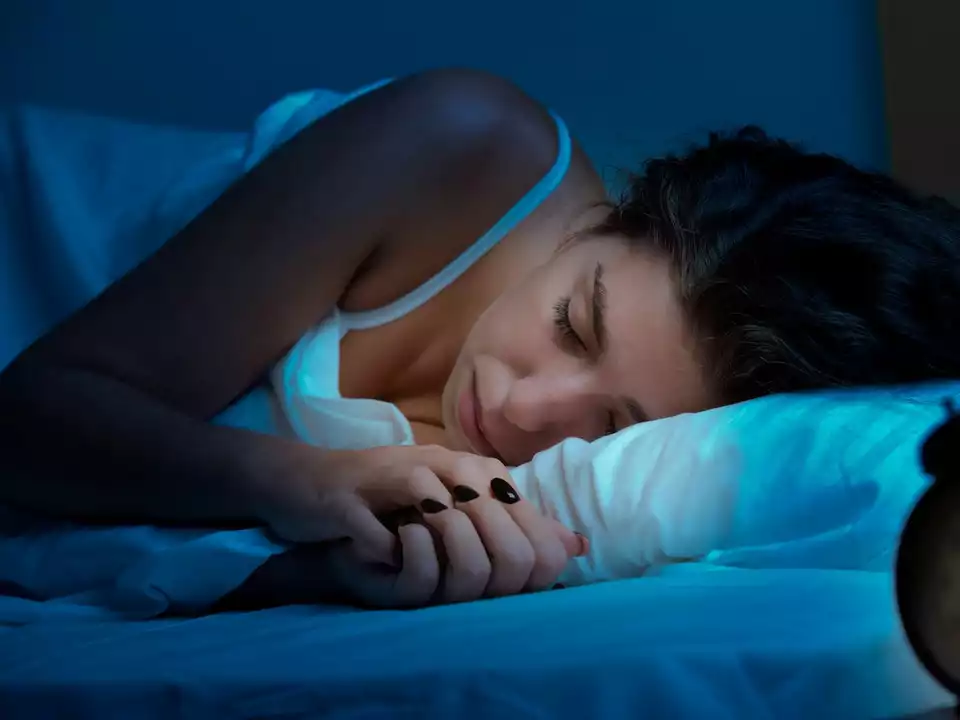The role of sleep aids in managing sleepiness: a guide to the options

Understanding the Importance of Sleep
As we all know, sleep is crucial for our overall health and well-being. When we don't get enough rest, it can negatively affect our mood, cognitive function, and even our physical health. Unfortunately, many people struggle with getting enough sleep due to various factors, such as stress, poor sleep hygiene, or medical conditions. This is where sleep aids can play a vital role in managing sleepiness and ensuring that we get the rest we need. In this article, we will explore different sleep aids and their benefits, so you can make an informed decision about which option is best for you.
Natural Sleep Aids: Herbal Remedies and Supplements
If you're looking for a more natural approach to improving your sleep, there are several herbal remedies and supplements available that may help. Some of the most popular options include melatonin, valerian root, chamomile, and lavender. These supplements and herbs have been used for centuries to promote relaxation and improve sleep quality. However, it's important to note that not all natural sleep aids work for everyone, and their effectiveness can vary depending on the individual. It's always best to consult with a healthcare professional before trying any new supplement or herbal remedy, especially if you're taking other medications or have existing health conditions.
Over-the-Counter Sleep Aids: Antihistamines and Other Options
For those seeking a more immediate solution to their sleep troubles, over-the-counter (OTC) sleep aids can be an effective option. Many OTC sleep aids contain antihistamines, which are typically used to treat allergies, but also have the side effect of causing drowsiness. Some common OTC sleep aids include brands like Unisom, ZzzQuil, and Tylenol PM. While these products can be helpful in the short term, it's important to be cautious about relying on them for an extended period. Long-term use of OTC sleep aids can lead to dependence, and they may not address the underlying causes of your sleep problems. Always talk to your doctor before starting any new medication, even if it's available over the counter.
Prescription Sleep Aids: When to Consider Medical Intervention
In some cases, sleep issues may be severe enough to require prescription medication. There are several types of prescription sleep aids available, including benzodiazepines, non-benzodiazepine hypnotics (such as Ambien or Lunesta), and orexin receptor antagonists (like Belsomra). These medications work by targeting different areas of the brain to promote sleep and can be highly effective for those with chronic insomnia or other sleep disorders. However, it's crucial to remember that prescription sleep aids should only be used under the guidance of a healthcare professional, as they can come with potentially serious side effects and risks, such as dependence or withdrawal symptoms.
Alternative Therapies: Exploring Non-Pharmacological Options
For those hesitant to try medication or supplements, there are various alternative therapies that may help improve sleep quality. Some of these options include cognitive-behavioral therapy for insomnia (CBT-I), meditation, yoga, and acupuncture. CBT-I, in particular, has been shown to be highly effective in treating sleep disorders, as it focuses on identifying and addressing the underlying thought patterns and behaviors that contribute to sleep problems. Incorporating relaxation techniques, such as meditation or deep breathing exercises, can also help promote a sense of calm and prepare the body for sleep. It's worth exploring these non-pharmacological options, either alone or in combination with other sleep aids, to find the most effective solution for your individual needs.
Creating a Sleep-Conducive Environment
Lastly, it's essential to consider the role that our sleep environment plays in our ability to get a good night's rest. Simple changes to your bedroom can make a significant difference in your sleep quality. Some tips for creating a sleep-conducive environment include keeping the room cool, dark, and quiet; investing in a comfortable mattress and pillows; and eliminating electronic devices from the bedroom. Establishing a consistent bedtime routine can also help signal to your body that it's time to wind down and prepare for sleep. By taking the time to create a relaxing and comfortable sleep environment, you're setting yourself up for a more restful and rejuvenating night's sleep.
In conclusion, there are numerous sleep aids available to help manage sleepiness and improve overall sleep quality. Whether you choose natural remedies, OTC medications, prescription drugs, or alternative therapies, it's important to find the right solution for your individual needs and always consult with a healthcare professional before trying any new treatment. Additionally, don't underestimate the power of a sleep-conducive environment and a consistent bedtime routine. Here's to a better night's sleep!

Nick Bercel
June 4, 2023 AT 04:07Alex Hughes
June 4, 2023 AT 06:07Hubert vélo
June 5, 2023 AT 02:44Kalidas Saha
June 6, 2023 AT 00:27Marcus Strömberg
June 6, 2023 AT 17:23Matt R.
June 7, 2023 AT 22:25Wilona Funston
June 9, 2023 AT 05:13Ben Finch
June 9, 2023 AT 19:00Naga Raju
June 11, 2023 AT 17:06Dan Gut
June 12, 2023 AT 11:41Jordan Corry
June 14, 2023 AT 07:22Mohamed Aseem
June 14, 2023 AT 15:27Steve Dugas
June 15, 2023 AT 11:22Paul Avratin
June 16, 2023 AT 21:29Brandi Busse
June 18, 2023 AT 08:48Colter Hettich
June 18, 2023 AT 21:25